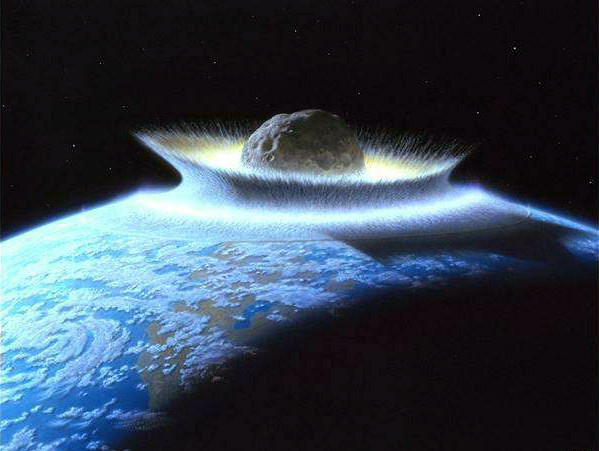Plan to protect Earth from rogue asteroids with nuclear weapons
Nuclear weapons are a vital defence against asteroids, says a US research centre

Nuclear weapons and atomic bombs that blast asteroids on a collision course with the planet, are a vital defence, says a US research centre.
Scientists at Los Alamos, the US government's space research centre in New Mexico, said that the threat of an asteroid impact is far greater than previously thought and research was required to work out the best way to destroy or deflect them.
"The goal is to study the effectiveness of using a nuclear explosive to alter the orbit, or destroy, a potentially harmful object," said Robert Weaver in a report submitted to the American Geophysical Union's annual meeting in San Francisco.
Impacts by large asteroids were believed relatively rare, but sensor networks set up to monitor illicit nuclear tests have recorded a large number of explosions now known to be caused by asteroids hitting the Earth, usually in remote areas.
Weaver warned that large impacts are extremely dangerous. The risks include "a direct hit in a urban area (potentially catastrophic but highly unlikely); the generation of a tsunami from an ocean impact close to a coastline; and regional and global effects from medium to large impactors".
The scientist and his colleagues plan to create computer simulations of a nuclear device detonating above an asteroid to calculate the optimum height to deflect or destroy it, according to a Sunday Times report.
Research on the threat from space is intensifying as experts from the European Space Agency (ESA) met up with disaster-response organisations in November to discuss tactics on asteroid collisions with Earth. One strand of research was to formulate systems to figure out where an asteroid could strike the planet.
"About three days before an impact we'd likely have relatively good estimates of the mass, size, composition and impact location," said Gerhard Drolshagen of ESA's Near-Earth Objects team. In the event of an asteroid collision, emergency teams could prepare for mass evacuations, saving thousands of lives.
Dozens of incoming asteroids have collided with the Earth since the beginning of the 21<sup>st century, some of them packing far more energy than an atomic bomb, according to the B612 Foundation — an asteroid-hunting non-profit organization founded by former Nasa astronauts.
There were 26 recorded events between 2000-2013 ranging in energy from one to 600 kilotons, all caused by asteroid impacts, B612 Foundation officials said. In comparison, the nuclear bomb that destroyed Hiroshima in 1945 exploded with the energy of 15 kilotons.
"While most large asteroids with the potential to destroy an entire country or continent have been detected, less than 10,000 of the more than a million dangerous asteroids with the potential to destroy an entire major metropolitan area have been found by all existing space or terrestrially operated observatories," former Nasa astronaut Ed Lu said in a statement. Lu started the B612 Foundation in 2002 with fellow astronaut Rusty Schweickart and colleagues.
"Because we don't know where or when the next major impact will occur, the only thing preventing a catastrophe from a 'city-killer' sized asteroid has been blind luck."
In the video below, Dr Weaver explains how nuclear weapons can save the Earth from asteroids.
© Copyright IBTimes 2025. All rights reserved.






















